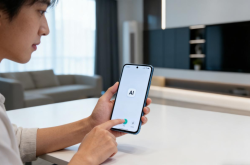Microsoft Demands Chinese Employees Use Only iPhones? A Blow to Android Manufacturers?
![]() 07/10 2024
07/10 2024
![]() 520
520
Microsoft seems to be stirring up trouble lately. For instance, not long ago, there were reports that Microsoft would close all offline authorized stores nationwide, retaining only official stores and flagship stores on some e-commerce platforms. The news about store closures has been non-stop, and the announcement sparked uproar in the market.

After all, Microsoft's hardware products still have a loyal fan base in China, such as Xbox and laptops. More importantly, these authorized stores also serve as service centers and after-sales support. What about existing users now?
Naturally, closing offline stores is Microsoft's consideration of cost issues. A staff member stated, "Offline investments are too large and unprofitable, and online sales are already sufficient at present."
However, let's be clear, whether it's Apple, Xiaomi, or other consumer brands, offline stores have never prioritized sales. Instead, the key lies in providing experiences, demonstrations, and services. Microsoft's move obviously indicates that its hardware business in the Chinese market is struggling.
The controversy over store closures has yet to subside, and in the past few days, Microsoft has once again dominated the hot search rankings on various platforms with topics such as "Microsoft Bans Android Phones for Chinese Employees" and "Microsoft Requires Chinese Employees to Use Only iPhones"...

Onlookers are left with a string of confused expressions, propelling Microsoft back into the spotlight. How did Android camp brands suddenly get silently stabbed in the back by this "tech giant," Microsoft?
Foreign media reports claim that since September, Microsoft has informed its Chinese employees that starting from this September, they can only use iPhones for work purposes.
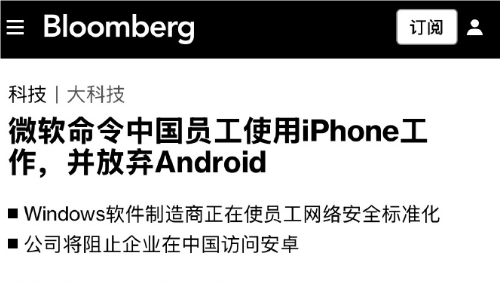
This means that Android devices have been excluded from the workplace by Microsoft. If an employee does not have an iPhone, Microsoft will provide one for free. So, what is the reason behind this decision?
According to a memorandum provided by foreign media, Microsoft's move is to ensure that Chinese employees can only use Apple devices to verify their identities when logging into work computers or phones. This is aimed at ensuring that all employees use Microsoft Authenticator for password management and Identity Pass for authentication. If that's the case, it might be for Microsoft's convenience in internal digital management. Onlookers can only assume that Microsoft is discriminating against Android.
For example, some netizens commented, "If I just get a free iPhone, I'll use whatever they want. I'm just an employee, I'll follow the rules."

However, the memorandum also reveals that Microsoft's decision is a specific measure under its global "Secure Future" strategic framework, aiming to enhance internal information security and ensure data safety and personal privacy protection. When security, data, and personal privacy are linked to Android, onlookers become highly interested. After all, whenever security issues arise with open-source Android, they always stimulate public interest.
Especially this time, as the elder brother in the tech field, Microsoft's move implies a more professional understanding of technology, especially data and personal information security.
By leading the way in banning Android devices in work scenarios and emphasizing "security," onlookers will interpret this in various ways, potentially further fueling doubts about Android device security.
Android device manufacturers must be devastated.
Compared to debates over value retention and user experience, in today's digital age, security issues are perhaps the top concern for everyone.
Shortly after, heated debates emerged on social media, divided into several camps. The first is the security debate between iOS and Android. The iOS camp argued, "It's commonly recognized that Android is vulnerable to backdoor eavesdropping," and "Apple is secure; even the FBI can't crack it"...

The Android camp countered, "Only Apple is secure and doesn't leak data? What about Snowden?"

Of course, there were also those who couldn't resist elevating any issue to a national dispute, not wanting to miss out on the excitement and contributing the most to the online spat.
For example, some said, "If China banned Apple and Tesla, there would be a lot of people jumping up and down to criticize it!"

Others commented, "It seems like Microsoft China is preparing to buy iPhones in bulk to help Apple clear inventory? They're playing double standards so smoothly. Imagine if any Chinese company blatantly banned Apple phones; they would be drowned in online criticism!"

There were also those who admired the West, saying, "Once they start, everyone does it. It's an integrated interest group. When they do something like this, many unrelated people come out to support them..."

And those who compared it to past events, "A few years ago, when companies encouraged employees to use Huawei and other domestic phones, the whole internet was outraged, saying it restricted employees' freedom to choose their phones. What do you think of this now?"
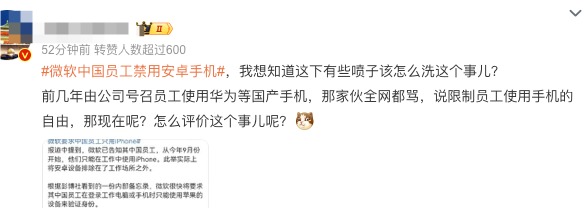
Of course, the HarmonyOS camp chimed in, "If only iPhones are allowed for work, and not even Android, then consider bulk purchasing Huawei phones with HarmonyOS!"

Realists also joined the discussion, "Look at how they ban it and give out free phones. Some companies only make demands and don't give anything. If you have requirements, provide employees with what they need."

"Can't they just give employees a free iPhone 15 as a work phone?"

"If they ban it, just give out new phones. Some sour grapes are just jumping around looking ugly."

Setting aside emotions and conspiracy theories, let's focus on security. What's the situation with Android and iOS? As a user of both iOS and Android, my personal experience is that the hardware experience gap between these two platforms has narrowed significantly over the years. In fact, Android device manufacturers have surpassed iPhone in hardware innovation.
However, when it comes to the system, Android still struggles to compete with iOS. iOS is more streamlined, while Android is often seen as cluttered. Even after years of mobile internet development, issues like ads popping up on Android devices haven't been completely resolved.
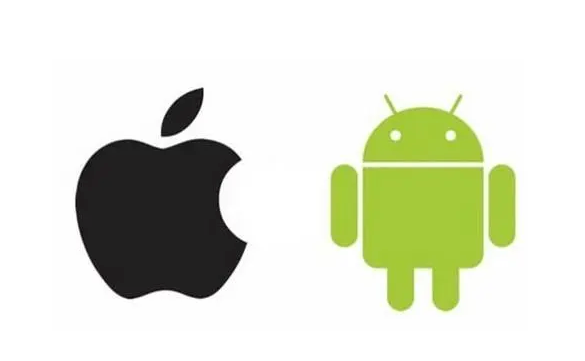
In terms of security, which is more important, iOS's FaceTime, calendar, and messaging functions have also been frequently targeted by scammers, but these attacks are usually obvious and rarely fool anyone. However, Android's security issues are more comprehensive, both surface-level and hidden. In particular, deep-seated applications often excessively access user information, collect private data, and even harbor risky files and consume resources.
Whether based on general or professional understanding, iOS is indeed more secure than Android.
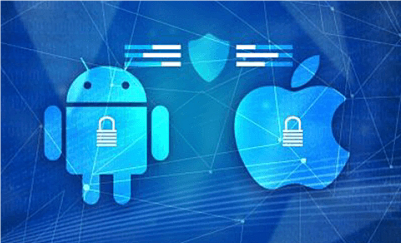
For instance, Android systems have long been plagued by security issues, particularly malware, data breaches, and privacy violations due to excessive app permissions. According to the "2023 National Mobile Application Security Observation Report" released by China Telecom Research, as of December 31, 2023, a total of 3.51 million Android apps underwent risk detection through the mobile application security platform. Among them, about 2.39 million apps had high-risk vulnerabilities, accounting for 76.89% of the total.
Behind these risks, users are monitored and bombarded with targeted ads, leading to privacy leaks that facilitate various types of fraud and cause financial losses.
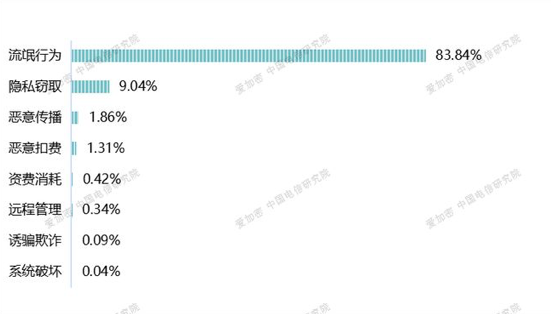
Furthermore, financial losses also stem from malicious deductions and service fees. Additionally, issues like frequent app self-starts and associated starts, excessive personal information collection, and cross-border data transmission are also headaches. According to surveys, in 2023, the mobile application big data platform conducted a sampling inspection of national Android apps' personal information compliance, testing over 150,000 apps. Among them, 21.98% had "frequent app self-starts and associated starts," 19.30% had "excessive personal information collection," and 12.14% had "illegal personal information collection." Analysis data even revealed that 13.53% of mobile apps were suspected of "transmitting data to overseas servers." Notably, throughout 2023, a total of 1,890 apps were reported for various security issues, with 1,702 being Android apps, accounting for 90.05% of the total.
Additionally, data shows that cybercrime targets Android users more frequently, with Apple accounting for less than 1%. Studies also indicate that Android phones collect 20 times more user data than iOS devices.
This series of data makes it clear that Android devices indeed have more prominent security issues compared to iOS systems. If Microsoft, a tech giant, indeed bans Android devices in work scenarios due to security concerns, Android device manufacturers may find it more crucial to recognize and address these issues rather than cover them up. Enhancing app review capabilities and establishing comprehensive security measures may be the only way to resolve these problems.
Once a tech giant starts questioning something, you must believe in its significant discourse power, its ability to reshape consumer perceptions, and its influence on consumer decisions.
From another perspective, in recent years, Android devices, whether phones or office tools like laptops, have aggressively caught up with iOS devices in terms of price. However, issues like user experience, security, and value retention still lag far behind iOS devices. In this context, if these disadvantages are not actively addressed, not only will tech giants like Microsoft vote with their feet, but users will too...
Chai Dogovsky ©
Author | Chai Sanhao
Editor | Tan Song
END


